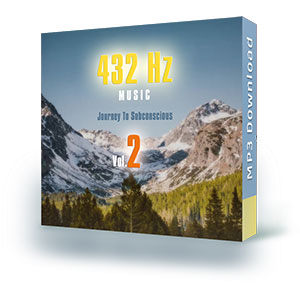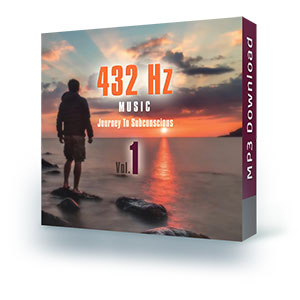- Get link
- X
- Other Apps
- Get link
- X
- Other Apps
Discover the Power of Relaxing Music for a More Peaceful and Productive Life
Escape the Stress and Relax Your Mind with Soothing Music
Music is an art form that uses sound and rhythm to create an emotional and aesthetic experience for the listener. It can take many forms, from classical orchestral compositions to modern pop songs, and can be created using a wide range of instruments and techniques.
Music is a universal language that has been an integral part of human culture for thousands of years, used for communication, expression, and celebration. It has the power to evoke emotions, create a sense of community, and bring people together.
Music can be enjoyed in many ways, including listening to recordings, attending concerts or live performances, or playing an instrument yourself. It can be used for relaxation, meditation, and therapy, as well as for entertainment and artistic expression.
Overall, music is a versatile and powerful medium that has the ability to connect people across cultures and generations and to inspire creativity, emotion, and joy.
Music has a rich and diverse history that spans thousands of years and multiple cultures. It has been an important part of human society since ancient times, used for communication, storytelling, religious and spiritual rituals, and entertainment.
The earliest known examples of music date back to ancient civilizations such as Egypt, Greece, and Mesopotamia, where music was played on instruments such as harps, lyres, and drums. In many cultures, music was closely tied to religious practices, with music and singing used to honor deities and connect with the divine.
As societies evolved, so too did the music. During the medieval period in Europe, music was used in religious ceremonies and courtly entertainment, with composers such as Hildegard von Bingen and Guillaume de Machaut creating complex polyphonic works.
In the Renaissance and Baroque eras, music became more complex and ornate, with composers such as Johann Sebastian Bach and Antonio Vivaldi creating masterpieces that are still performed today. The classical period saw the emergence of iconic composers such as Wolfgang Amadeus Mozart and Ludwig van Beethoven, who wrote symphonies, operas, and sonatas that remain beloved today.
In the 20th century, music underwent a revolution, with the emergence of new styles such as jazz, blues, rock and roll, and hip hop. These new genres reflected changing societal norms and cultural shifts, with music becoming a powerful form of expression for social and political movements.
Today, music continues to evolve and diversify, with artists from around the world creating new and innovative sounds. With the advent of new technologies and platforms such as streaming services, music has become more accessible than ever, connecting people across cultures and continents and enriching our lives in countless ways.
Types of Music:
There are many different types and genres of music, each with its own unique style and characteristics. Some of the most popular types of music include:
Pop-upbeat and catchy music are designed for a wide audience, often featuring simple lyrics and electronic instrumentation.
Rock - guitar-driven music characterized by loud, amplified sound and heavy beats, with a focus on lyrics that express personal and social issues.
Classical - formal and sophisticated music featuring orchestral instruments such as violins, cellos, and pianos, with a focus on complex arrangements and harmonies.
Jazz - improvisational and expressive music characterized by syncopated rhythms, brass and woodwind instruments, and a focus on individual musicianship.
Hip hop - rhythmic and energetic music featuring spoken rhymes and electronic beats, with a focus on lyrics that express social and cultural issues.
Electronic - music created entirely through electronic means, often featuring synthesizers, drum machines, and digital effects.
Country - music is characterized by twangy vocals, acoustic guitars, and lyrics that often focus on rural life, love, and heartbreak.
R&B - smooth and soulful music characterized by rich vocals, often featuring electronic beats and synthesizers, with a focus on themes of love and romance.
Reggae - music originating in Jamaica featuring a distinctive rhythm and upbeat sound, often featuring themes of social justice and positivity.
Folk - music that emphasizes traditional instruments and storytelling, often featuring acoustic guitars, banjos, and fiddles, with a focus on themes of community and identity.
These are just a few examples of the many different types of music that exist, each with its own unique sound and cultural significance.
Relaxing Music:
Relaxing music is a genre of music that is specifically designed to help people unwind, de-stress, and relax. It often features slow tempos, soothing melodies, and ambient soundscapes that create a calming and peaceful atmosphere.
Relaxing music can take many forms, from instrumental compositions to nature sounds, and is often used for meditation, yoga, massage, and other forms of relaxation therapy. Some popular examples of relaxing music include classical music by composers such as Johann Sebastian Bach and Ludwig van Beethoven, ambient music by artists such as Brian Eno and Steve Roach, and nature sounds such as rain or ocean waves.
Listening to relaxing music has been shown to have numerous health benefits, including reducing stress and anxiety, improving sleep quality, and lowering blood pressure. It can also be a helpful tool for mindfulness and meditation, helping people to focus and stay present at the moment.
History of Relaxing Music:
The history of relaxing music dates back centuries, as music has long been used to promote relaxation and calmness. One of the earliest forms of relaxing music can be traced back to the ancient Greeks, who used music to heal the mind and body.
During the Middle Ages, religious music was often used for meditation and contemplation, with chants and hymns helping to create a peaceful and calming atmosphere. The Renaissance period saw the emergence of instrumental music, with composers such as William Byrd and Johann Sebastian Bach creating works that were intended to promote relaxation and introspection.
In the 20th century, the development of new technologies such as recorded music and electronic instruments paved the way for new forms of relaxing music. Artists such as Brian Eno and Steve Roach created ambient music that featured gentle soundscapes and atmospheric textures, designed to create a tranquil and calming environment.
New-age music also emerged as a popular genre in the 1980s, with artists such as Enya and Yanni creating music that was intended to promote relaxation and stress relief. These artists often combined elements of classical, world, and electronic music to create a unique and soothing sound.
Overall, relaxing music is a powerful tool for promoting wellness and relaxation and is a popular choice for people looking to reduce stress and improve their overall well-being.
Types of Relaxing Music:
There are many different types of relaxing music, each with its own unique sound and purpose. Here are some of the most popular types of relaxing music:
Classical music - Composed by famous classical music composers such as Bach, Mozart, and Beethoven, this type of music features soothing melodies and harmonies that are perfect for relaxation and meditation.
Ambient music - Characterized by its use of atmospheric sounds and textures, ambient music is often used in relaxation therapy, meditation, and yoga.
Nature sounds - From the sounds of rain and thunderstorms to the gentle lapping of ocean waves, nature sounds can be incredibly calming and relaxing.
New age music - A genre that emerged in the 1970s and 1980s, new age music often features ethereal and mystical sounds and is designed to promote relaxation and spiritual well-being.
Instrumental music - Whether it's the gentle strumming of a guitar or the delicate tones of a piano, instrumental music can be incredibly relaxing and soothing.
World music - From traditional African rhythms to the tranquil sounds of Japanese koto music, world music can be a great way to escape the stresses of everyday life.
Overall, there are many different types of relaxing music to choose from, and each can offer its own unique benefits for promoting relaxation and reducing stress.
Benefits of Relaxing Music:
Relaxing music has numerous benefits for both the mind and body. Here are some of the main benefits of listening to relaxing music:
Reduces stress and anxiety - Listening to relaxing music can help to lower cortisol levels, which are associated with stress and anxiety.
Improves sleep quality - Research has shown that listening to relaxing music before bedtime can improve sleep quality and help people fall asleep faster.
Lowers blood pressure - Relaxing music has been shown to help lower blood pressure, which can reduce the risk of heart disease and other health problems.
Boosts mood - Listening to music can trigger the release of dopamine, a neurotransmitter that is associated with pleasure and reward, which can improve mood and reduce feelings of depression.
Enhances focus and concentration - Relaxing music can help to block out distracting noises and create a calm and peaceful environment, which can enhance focus and concentration.
Reduces muscle tension - Relaxing music has been shown to reduce muscle tension and promote relaxation, making it a great tool for relaxation therapy and massage.
Overall, listening to relaxing music can be a powerful tool for promoting physical and mental well-being, reducing stress, and improving the overall quality of life.
Are you feeling stressed out and need a moment of relaxation? Look no further! Get our soothing music collection and let the calming melodies wash away your worries. Don't wait, take advantage of this offer now and start enjoying the benefits of relaxation today!
HOW YOU CAN ACTIVATE YOUR INTERNAL “WEALTH DNA” TO ATTRACT MONEY TO YOU EFFORTLESSLY…
Conclusion:
In conclusion, taking time to unwind and de-stress is crucial for a healthy and balanced life. One effective way to achieve this is by incorporating relaxing music into your daily routine. Not only can it help calm your mind and ease tension in your body, but it can also increase productivity and overall well-being. So why not give it a try and discover the power of relaxing music for yourself? Start your journey towards a more peaceful and productive life today!
Final verdict:
taking the time to unwind and de-stress with relaxing music can have a significant impact on your well-being, helping you achieve a more peaceful and productive life. By incorporating this simple practice into your daily routine, you can enjoy the many benefits of relaxation, such as increased focus, better sleep, and reduced stress levels. So don't hesitate to try it out for yourself and discover the power of relaxing music. Thank you for reading and I hope this has been helpful.




.png)

Comments
Post a Comment